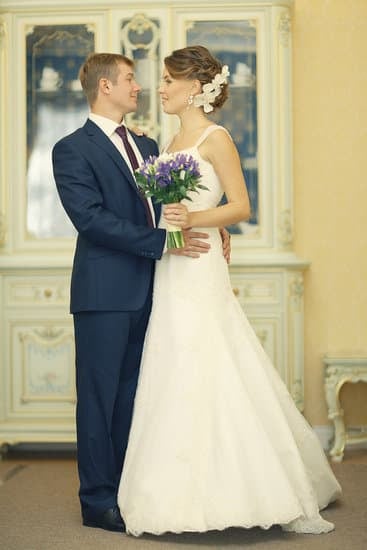Planning a wedding can be an exciting yet daunting task, with a multitude of details to consider to ensure a memorable celebration. One crucial aspect that often requires careful planning is the selection and quantity of beverages, particularly beer and wine. Understanding how to calculate beer and wine for a wedding is essential to avoid running out or overspending on alcohol for your special day.
As you prepare for your wedding festivities, determining the guest list plays a pivotal role in estimating the amount of beer and wine needed. The number of attendees will directly impact the overall consumption of alcohol at your event. Factors such as the duration of the reception, time of day, and drinking preferences of your guests should also be taken into account when calculating quantities.
Additionally, it is imperative to consider the type of event you are hosting when selecting beverages for your wedding. Whether you are having a casual outdoor gathering or a formal sit-down dinner, the style of your event will influence the choice of beer and wine. By carefully assessing these factors, you can ensure that your selections complement the overall ambiance of your celebration while catering to the tastes of your guests.
Determining the Guest List
When planning a wedding, one of the essential aspects to consider is the guest list. Determining the number of attendees will not only help you estimate the size of your event but also play a crucial role in calculating beer and wine quantities for your special day.
Understanding how many people will be present at your wedding will allow you to make more accurate predictions on alcohol consumption, ensuring that you have enough beverages to keep your guests satisfied throughout the celebration.
Factors to Consider
Several factors should be taken into account when determining the guest list for your wedding. Whether you are hosting a small and intimate gathering or a large and extravagant affair, estimating the number of attendees can be influenced by various elements such as family size, friend groups, plus ones, and potential dropouts.
It is crucial to carefully consider all these factors to get an accurate headcount and make informed decisions when it comes to purchasing beer and wine for your event.
Estimating Alcohol Consumption
Once you have finalized your guest list, it’s time to estimate alcohol consumption based on the number of attendees. Typically, experts recommend planning for each guest to consume about two drinks during the first hour of the reception and one drink for each additional hour.
By using this guideline along with considering factors like time of day, duration of the event, and guest preferences, you can calculate how much beer and wine will be needed for your wedding accurately. Be sure to also take into account any non-alcoholic options that may influence overall demand for alcoholic beverages.
Type of Event
When planning your wedding, one of the crucial aspects to consider is the type of event you want to host. Whether you are leaning towards a casual backyard affair or a formal black-tie celebration, the atmosphere and vibe of your wedding will influence the alcohol you need to calculate. Different types of weddings typically have varying levels of alcohol consumption, so understanding these factors will help you accurately estimate how much beer and wine to provide for your guests.
To help you navigate through this decision-making process, here are some factors to consider based on whether you are planning a casual or formal wedding:
- Guest Demographics: Take into account the preferences and drinking habits of your guests. A casual wedding with a younger crowd may lean towards more beer consumption, while an older demographic at a formal event might prefer wine.
- Duration of Event: For a longer reception or party, plan for increased alcohol consumption per person compared to a shorter gathering.
- Menu Pairing: Consider the food being served at your wedding. Match the beer and wine selection with the menu to enhance flavors and overall guest experience.
Ultimately, deciding on the type of event will play a significant role in determining how much beer and wine to calculate for your wedding. By taking these factors into consideration, you can ensure that your guests enjoy their drinks throughout the celebration while staying within your budget constraints.
- An informal garden ceremony might call for refreshing craft beers and light wines.
- A fancy banquet hall reception could warrant an elegant selection of champagne for toasts and premium red and white wines.
- Consider offering signature cocktails as well, tailored to fit the theme or color scheme of your wedding.
Beer Selection
When planning your wedding reception, one of the key elements to consider is the selection of beers that will be served to your guests. Choosing the right types of beer can enhance the overall experience for your attendees and ensure that everyone has something they enjoy. There are several factors to keep in mind when selecting beers for your wedding, including the preferences of your guests, the season or time of year, and the style of your event.
To start off, it’s important to consider the taste preferences of your guests when choosing beers for your wedding reception. Think about what types of beer are popular among your family and friends, as well as any specific requests or recommendations you may have received.
Offering a variety of beer styles such as lagers, ales, pilsners, and stouts can ensure that there is something for everyone to enjoy. Consider including both domestic and craft beers to cater to different tastes.
Additionally, take into account the season or time of year when selecting beers for your wedding reception. For example, lighter and more refreshing beers like pilsners and wheat beers may be more suitable for a summer wedding, while darker and heavier options like stouts and porters could be better suited for a winter event.
You can also incorporate seasonal or local craft beers to add a unique touch to your drink selection. By considering these factors, you can create a well-rounded beer menu that complements the overall vibe of your wedding celebration.
Lastly, don’t forget to coordinate with your vendors on how to calculate beer and wine for wedding accurately. Communicate with them about the estimated number of guests attending your reception and discuss any specific beer preferences or requirements you may have.
Working closely with your vendors will help ensure that you have enough beer on hand to meet the needs of your guests while staying within budget and avoiding wastage. With careful planning and thoughtful consideration, you can choose the right types of beer for your wedding reception that will delight your guests and add to the festive atmosphere of the day.
Wine Selection
When it comes to selecting wines for your wedding reception, it’s important to consider your guests’ preferences and offer a variety that will cater to different tastes. One key tip is to offer both red and white wines to accommodate the diverse preferences of your attendees.
Red wines like Cabernet Sauvignon or Merlot are popular choices for weddings due to their versatility and ability to pair well with a range of dishes. On the other hand, white wines such as Chardonnay or Sauvignon Blanc are great options for those who prefer lighter and crisper flavors.
Another important factor to consider when selecting wines for your wedding is the season and time of year. For example, if you’re having a summer wedding, you may want to opt for refreshing and light-bodied wines like Rosé or Pinot Grigio. Alternatively, if you’re hosting a fall or winter wedding, rich and full-bodied wines like Malbec or Syrah can be a cozy choice for your guests.
Additionally, it’s helpful to take into account any specific dietary restrictions or preferences that your guests may have. Offering a selection of both traditional and alternative wine options such as organic or vegan wines can ensure that all of your attendees feel included and have something they can enjoy. By considering these tips and keeping your guests’ tastes in mind, you can select wines that will enhance the overall experience of your wedding celebration.
Calculating Quantities
Understanding the Formula
When it comes to calculating the quantities of beer and wine needed for your wedding, it’s essential to have a formula in mind. Typically, experts recommend estimating one drink per person per hour for beer and wine.
This calculation allows you to ensure that you have enough beverages to keep your guests satisfied throughout the event. For example, if you’re expecting 100 guests at your wedding reception lasting four hours, you should plan for approximately 400 drinks in total – 200 beers and 200 glasses of wine.
Considerations for Estimating
Several factors can influence how much beer and wine you’ll need for your wedding. It’s crucial to take into account the time of day of your event, as guests tend to consume more alcohol later in the evening compared to daytime weddings. Additionally, consider the season – more refreshing drinks may be preferred during summer months, while richer options might be favored in fall or winter.
Customizing Quantities
While having a general formula as a guideline is helpful, it’s also important to customize the quantities based on your specific guest list. Take into consideration if you have more beer drinkers than wine enthusiasts among your attendees so that you can adjust the ratio accordingly.
Communicate with your vendors about any preferences or special requests so that they can tailor their offerings to suit your needs effectively. By personalizing the quantities of beer and wine for your wedding, you can ensure a memorable celebration tailored to your guests’ tastes.
Working With Vendors
When planning a wedding, one of the crucial aspects to consider is the amount of beer and wine needed to cater to your guests. Working with vendors to communicate your alcohol needs is essential to ensure a seamless process on your special day. From determining the type of event to selecting the right types of beer and wine, here are some key tips on how to effectively work with vendors for your wedding.
To accurately calculate the quantity of beer and wine required for your wedding, it’s important to have a clear understanding of the number of attendees that will be present. Creating a guest list will help you estimate the alcohol consumption based on the size of your party. Factors like the duration of your event, whether it’s an all-day affair or just an evening reception, also play a role in determining how much alcohol you’ll need.
When communicating with vendors about your alcohol needs, consider discussing the type of event you’ll be hosting. Whether it’s a casual backyard wedding or a formal black-tie affair, the style and atmosphere of your celebration can impact the selection and quantity of beer and wine required. Make sure to convey these details to your vendors so they can assist you in choosing the right beverages for your big day.
- Consider factors such as guest preferences
- Determine if any specialty cocktails or spirits will be served
- Discuss any specific brand preferences or requests
In addition to outlining the type of event and guest list details, provide vendors with information on how much beer and wine you’d like to serve at your wedding. Collaborate with them on calculating quantities using a formula that takes into account variables such as number of guests, duration of event, average consumption per person, and more.
By clearly communicating these details with vendors, you can ensure that there will be enough alcohol available for all guests without going over budget.
- Calculate beer: Number of guests x duration x average beer consumption per person
- Calculate wine: Number of guests x duration x average wine consumption per person
- Consider rounding up quantities to accommodate for unexpected guests or increased consumption
Budget Considerations
When planning your wedding, one of the crucial aspects to consider is how to balance quality and quantity within your budget, especially when it comes to beer and wine. The key is to find that perfect equilibrium where you can offer your guests a selection of beverages that are both enjoyable and within your financial means. Here are some tips on managing your budget effectively when it comes to alcohol for your special day.
First and foremost, set a clear budget for your wedding alcohol. Determine how much you are willing to spend on beer and wine specifically, keeping in mind the number of guests you’ll be hosting and their beverage preferences. By establishing a budget from the outset, you can make informed decisions when selecting the types and quantities of alcohol for your event.
Consider opting for local or house wines and beers as a cost-effective way to provide quality drinks without breaking the bank. Many wineries and breweries offer excellent options at more affordable prices compared to well-known brands. Additionally, buying in bulk from wholesalers or directly from producers can help you save money on larger quantities of beer and wine.
To further manage costs, limit the variety of drinks offered at your wedding. Instead of having an extensive selection of wines or beers, focus on a few crowd-pleasers that cater to different tastes. This not only simplifies the purchasing process but also reduces waste by ensuring that most, if not all, bottles are consumed by your guests. With these strategies in mind, you can strike a balance between providing high-quality alcohol while staying within your allocated budget.
| Tip | Details |
|---|---|
| Set a Clear Budget | Determine how much you are willing to spend on alcohol for your wedding. |
| Opt for Local or House Varieties | Selecting wines and beers from local sources can be more cost-effective. |
| Limit Drink Variety | Focus on fewer drink options that appeal to varying tastes to reduce costs. |
Tips for Managing Leftover Alcohol
Planning a wedding involves many details, including estimating the quantity of beer and wine needed for your reception. However, it’s common to end up with leftover alcohol after the festivities are over. This section will provide you with some tips on how to manage excess beer and wine effectively so that nothing goes to waste.
One option for dealing with leftover beer and wine is to allow your guests to take home the bottles. You can provide them with small gift bags or boxes where they can pack their favorite beverages to enjoy later. This way, your loved ones can continue celebrating even after the wedding is done, and you won’t have to worry about storing or disposing of the excess alcohol.
Another idea is to donate the leftover beer and wine to a local charity or organization in need. Many shelters, food banks, or community centers would welcome such donations for their events or fundraising activities. It’s a meaningful way to share the joy of your special day with others and contribute positively to your community.
If you prefer not to give away the leftover alcohol, you can always repurpose it for future gatherings or occasions. You could use the wine for cooking or baking recipes that call for alcohol as an ingredient, such as adding red wine to a delicious beef stew or white wine in a creamy pasta sauce.
For beer, consider using it in marinades for grilled meats or incorporating it into bread recipes for added flavor. By getting creative in the kitchen, you can make sure that every drop of beer and wine serves a purpose even after the wedding festivities have concluded.
| Option | Details |
|---|---|
| Allow Guests To Take Home | Provide gift bags or boxes |
| Donate To Charity | Local shelters, food banks, community centers |
| Repurpose For Cooking/Baking | Use in recipes like stews, sauces; marinades; bread baking |
Conclusion
In conclusion, calculating beer and wine quantities for a wedding is a crucial aspect of planning a successful event. By carefully estimating the number of attendees, considering the type of event, selecting the right types of beer and wine, and working closely with vendors to communicate your needs, you can ensure that your guests are well taken care of when it comes to their alcohol preferences.
One key factor in successfully calculating beer and wine for your wedding is understanding the formula and considerations involved. By taking into account factors such as the duration of the event, guest preferences, and consumption rates, you can more accurately estimate the quantities needed. Remember to also keep budget considerations in mind, balancing quality and quantity within your allocated funds.
Lastly, managing leftover alcohol is another important aspect to consider post-wedding. Whether through returning unopened bottles to vendors or repurposing excess beer and wine for future gatherings or as gifts, there are various ways to handle surplus alcohol. By following these tips and advice on how to calculate beer and wine for weddings, you can ensure a smooth and enjoyable experience for both you and your guests on your special day.
Frequently Asked Questions
What Is the Ratio of Beer to Wine at a Wedding?
The ratio of beer to wine at a wedding can vary depending on the preferences of the couple and their guests. Typically, a common ratio is around 60% beer to 40% wine. However, this can be adjusted based on factors like the time of year, the formality of the event, and personal taste.
How Do You Calculate Beer for a Wedding?
Calculating how much beer you need for a wedding involves considering several factors. First, you should estimate the number of guests who will be drinking beer and determine how many drinks per guest you expect.
Next, calculate the average drink size (bottle, can, or keg) and multiply it by the number of drinks per guest to get your total amount needed.
How Many Beers Do I Need for a 200 Person Wedding?
For a 200-person wedding, estimating how many beers you need involves some math. On average, guests consume about 2 drinks in the first hour of an event and then one additional drink for every following hour.
With this in mind, for a typical 5-hour reception with 200 guests drinking beer, you would need approximately 800-1000 beers to accommodate everyone’s preferences throughout the night.

I have been involved in marriages for over 20 years helping couples and singles understand more about them.





